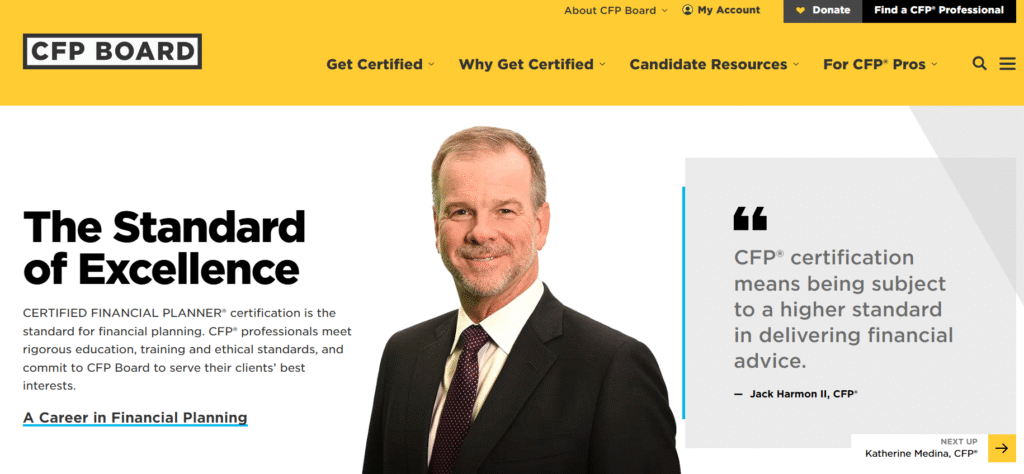How To Become A Millionaire Fast

Building wealth that crosses the seven-figure mark isn’t like winning the lottery or stumbling upon some secret algorithm hidden in your grandma’s attic. Most people dream about becoming millionaires, but honestly? They have zero clue where to start.
Here’s the thing: I’ve spent years studying financial patterns, digging through case studies, and analysing what separates people who actually build wealth from those who just talk about it. And guess what? The strategies aren’t rocket science.
They’re just strategies most people refuse to execute because they require discipline, patience, and some serious mindset shifts.
Throughout my career in finance, I’ve watched countless individuals transform their financial situations from paycheck-to-paycheck survival to building impressive wealth portfolios. The common denominator? They followed specific principles religiously.
No shortcuts. No get-rich-quick schemes. Just consistent, intelligent financial decisions compounded over time.
Ready to understand how this actually works? Let’s break it down.
What Is The First Step To becoming a Millionaire?
Before you start counting imaginary millions, you need a blueprint. Think of it like building a house, you wouldn’t just throw bricks together randomly and hope for the best, right?
Your first step involves creating a comprehensive financial roadmap that outlines exactly how you’ll reach seven figures. This isn’t some vague “I want to be rich” statement scribbled on a napkin. I’m talking about a detailed plan that includes specific income targets, investment strategies, and realistic timelines.
When I work with clients, I make them answer three critical questions: Where’s your money coming from? Where’s it going? And how are you multiplying it? If you can’t answer these clearly, you’re basically driving blindfolded.
Your plan should identify your current financial position (yes, even if it’s negative, especially if it’s negative), your target net worth, and the specific vehicles you’ll use to get there. Will you rely on aggressive entrepreneurship? Real estate investments? Stock market growth? A combination of all three?
The most successful wealth-builders I know revisit their plans quarterly. They adjust, optimise, and stay flexible when market conditions change. Your plan isn’t set in stone; it’s a living document that evolves with your journey.
How Long Does It Take To Become A Millionaire?
Ah, the million-dollar question. Literally. 🙂
The timeline varies wildly depending on your starting point, income level, and how aggressively you execute your strategy. Some tech entrepreneurs hit millionaire status within five years. Others following traditional investment routes might take 20-30 years. Neither path is wrong; they’re just different.
Let me give you some real perspective here. If you’re 25 years old, earning $60,000 annually, and you invest 20% of your income with an average 10% annual return, you could realistically hit millionaire status by your mid-40s. Not overnight, but definitely achievable.
However, if you’re combining multiple income streams, perhaps a primary career, a profitable side business, and strategic investments, you could potentially accelerate this timeline significantly. I’ve seen people go from $50,000 net worth to $1 million in under a decade by being extremely intentional with every financial decision.
The brutal truth? Consistency matters more than initial capital. Someone making $80,000 who invests consistently will outpace someone making $150,000 who spends everything. I’ve watched this scenario play out dozens of times.
Your timeline also depends heavily on your risk tolerance and investment sophistication. More aggressive strategies can speed things up, but come with higher stakes. Conservative approaches take longer but offer more stability and predictability.
What Happens When You Become A Millionaire?
Here’s where people get it wrong. They think hitting seven figures means champagne fountains and yacht parties every weekend. Reality check: most millionaires still drive reasonable cars and live in normal neighbourhoods.
What actually changes? Financial breathing room. Serious breathing room.
You stop stressing about unexpected car repairs or medical bills. Your emergency fund can actually cover genuine emergencies without derailing your entire financial plan. You have options, real options, when job opportunities arise or when you want to take calculated risks.
But here’s something crucial I tell all my clients: becoming a millionaire doesn’t mean you suddenly get permission to be financially reckless. In fact, maintaining wealth requires the same discipline that built it in the first place.
You’ll still need to budget effectively, maintain emergency reserves, and make strategic investment decisions. The difference is that now your financial cushion is significantly thicker, giving you resilience against economic downturns and personal setbacks.
One surprising thing? Many millionaires report that crossing that threshold didn’t dramatically change their daily lives. They still work (because most built businesses they’re passionate about), they still monitor expenses, and they still think carefully about major purchases. Wealth doesn’t automatically equal extravagance.
10 Ways To Become A Millionaire
Alright, let’s get into the practical strategies. These aren’t theoretical concepts; they’re battle-tested approaches that actually work when you implement them correctly.
1. Avoid Debt

Debt is probably the biggest wealth-killer I encounter in my practice. And I’m not just talking about credit card balances, I mean any debt that doesn’t generate positive returns.
Think about it mathematically. If you’re paying 18% interest on credit card debt while trying to earn 10% returns on investments, you’re losing ground every single day. You’re literally working against yourself.
Now, I’m not saying all debt is evil. Strategic debt, like a mortgage on an appreciating property or a business loan that generates higher returns than the interest rate, can actually accelerate wealth building. But consumer debt? That stuff will anchor you to the bottom of the financial ocean.
When clients come to me drowning in debt, we attack it with laser focus before doing anything else. The debt snowball method works incredibly well for building momentum. You pay off the smallest balances first, creating psychological wins that fuel continued progress.
Here’s the brutal math: every $10,000 in credit card debt at 18% interest costs you $1,800 annually just in interest payments. That’s $1,800 that could be growing in investments instead of lining credit card companies’ pockets. Over 30 years with compound growth, that represents nearly $300,000 in lost wealth potential.
If you absolutely must take on debt, make it produce income that exceeds the borrowing cost. Otherwise, run in the opposite direction.
2. Embrace Early Investments
Time is your greatest ally in wealth building. Seriously, you can’t buy more time, and compound growth doesn’t care about your excuses.
Let me illustrate with real numbers. If you invest $500 monthly starting at age 25 with an average 10% annual return, by age 65, you’ll have approximately $3.2 million. Start the same investment at age 35 instead? You’ll have about $1.1 million. Same monthly contribution, but starting ten years earlier nearly triples your final balance.
This is compound interest working its magic. Your money makes money, then that money makes more money, creating this exponential growth curve that gets steeper over time.
I always tell young professionals: even if you can only invest $100 monthly right now, start. You can increase contributions as your income grows. What you can’t do is buy back the years you waited.
Consider opening a Roth IRA if you’re eligible. The tax-free growth is incredible for long-term wealth building. Or maximise employer 401(k) matching, that’s literally free money you’re leaving on the table if you ignore it.
The psychological benefit of early investing is equally important. You develop the habit and mindset of prioritising wealth building. It becomes automatic, not something you’ll “get around to eventually.”
3. Save Money Consistently

Consistency beats intensity every single time. I’d rather see someone save $500 monthly for 20 years than someone who saves $5,000 sporadically whenever they feel motivated.
Financial experts typically recommend saving at least 15-20% of your gross income. Notice I said “at least.” If you’re serious about accelerating your path to millionaire status, consider pushing that to 25-30% if your lifestyle allows.
This isn’t about depriving yourself of everything enjoyable. It’s about making intentional choices that align with your long-term goals. Maybe you keep the annual vacation but skip the daily $7 coffee shop habit. Small recurring expenses add up dramatically over decades.
I use what I call the “automation strategy” with clients. Set up automatic transfers to savings and investment accounts on payday, before you even see the money. You can’t spend what you don’t see in your checking account. Psychology matters here; people spend what’s available.
Building an emergency fund of 3-6 months’ expenses should be your first savings priority. This prevents you from derailing long-term investments when unexpected expenses hit. And trust me, unexpected expenses will hit.
After your emergency fund is solid, direct additional savings toward retirement accounts, taxable investment accounts, or specific goal-based savings (down payment, business capital, etc.). Diversifying where your savings live provides flexibility and tax optimisation.
4. Increase Your Income Significantly
Here’s an uncomfortable truth: you can’t save your way to millions on a $35,000 salary. The math simply doesn’t work unless you want to take 40 years and live like a monk.
Income growth is essential for accelerating wealth building. You need more money flowing in to save more, invest more, and build faster.
For employees, this means negotiating raises aggressively (most people leave thousands on the table by never asking), pursuing promotions strategically, or switching companies when better opportunities arise. Studies consistently show that changing employers typically yields 10-20% salary increases, far exceeding typical annual raises.
But here’s where it gets interesting: you’re not limited to one income stream. Side businesses, freelancing, consulting, rental income, dividend portfolios, all represent additional channels for cash flow.
I personally run several income streams beyond my primary consulting practice. Some months, my side projects generate more than my main work. This diversification also provides security. If one stream dries up, others continue flowing.
Start small with a side income. If you’re skilled at graphic design, pick up freelance projects on Upwork or Fiverr. Good with writing? Content creation pays surprisingly well. Have a spare room? Short-term rentals can generate substantial income.
The key is reinvesting this additional income rather than inflating your lifestyle. Every extra dollar you earn and invest accelerates your timeline to seven figures.
5. Avoid Unnecessary Expenses
“Lifestyle inflation” is the silent wealth killer. You get a raise, so you upgrade your apartment, car, and wardrobe. Suddenly, despite earning more, you’re saving the same amount, or worse, less.
I’m not suggesting you live in a cave eating ramen forever. But there’s a massive difference between conscious spending and mindless consumption.
Audit your expenses quarterly. Seriously, sit down with three months of bank statements and categorise everything. You’ll be shocked at how much bleeds away on subscriptions you forgot about, convenience purchases, and “small” recurring expenses that compound into thousands annually.
The 50/30/20 budgeting rule provides a solid framework: 50% for needs, 30% for wants, 20% for savings and debt repayment. If you’re aggressively pursuing millionaire status, flip that wants percentage into additional savings.
One strategy I love: implement a 24-hour rule for purchases over $100. If you still want it after 24 hours, buy it. This simple delay eliminates probably 30-40% of impulse purchases.
Transportation is typically where people overspend dramatically. You don’t need a $50,000 vehicle to get to work. Drive something reliable and affordable. Invest the difference. That decision alone can accelerate your wealth-building timeline by years.
6. Get Assistance From An Investment Expert
Look, I work in finance, and I still consult with specialists for areas outside my expertise. Nobody knows everything, and expensive mistakes happen when people overestimate their knowledge.

A qualified certified financial planner brings several advantages: they understand optimisation strategies, they stay current on regulation changes, they provide objective perspectives when emotions run high, and they’ve seen countless scenarios you haven’t encountered yet.
The statistics support this, too. Studies show people working with financial advisors typically accumulate significantly more wealth than those going solo. The guidance value, accountability, and strategic planning more than offset the advisory fees.
Now, choosing the right advisor matters enormously. You want someone who’s a fiduciary (legally obligated to act in your best interest), charges transparent fees rather than earning commissions on products they sell you, and has relevant credentials like CFP or CFA designations.
Interview multiple advisors before committing. Ask about their investment philosophy, how they charge, what services they provide, and request references from long-term clients. This relationship potentially spans decades; take the selection seriously.
For those earlier in their wealth-building journey who can’t yet afford comprehensive planning, consider robo-advisors like Betterment or Wealthfront. They provide algorithm-driven portfolio management at a fraction of traditional advisory costs.
7. Work Smart
Hard work alone doesn’t create millionaires. The world is full of people working 60-hour weeks who never break into six-figure net worths.
Working smart means maximising value per hour invested. It means focusing on high-leverage activities that generate disproportionate returns. It means recognising when you’re busy versus when you’re actually productive.
In my own career, I realised that spending hours on administrative tasks was costing me actual earning potential. I hired a virtual assistant for $15/hour to handle that work, freeing my time for client work that generates $200+/hour. That’s working smart.
Entrepreneurs especially need this mindset. You can’t do everything yourself and scale simultaneously. Delegate, automate, or eliminate low-value tasks. Focus your personal time on the 20% of activities that drive 80% of results.
For employees, working smart means positioning yourself for promotions, building valuable skills that command premium compensation, and networking strategically. It means understanding your industry’s trends and riding growth waves rather than fighting uphill battles in declining sectors.
Timing matters too. Launching certain businesses during economic upswings versus downturns dramatically affects the success probability. FYI, studying market cycles and positioning accordingly separates smart operators from everyone else.
8. Learn From Previous Financial Mistakes
Mistakes are expensive education, but only if you actually learn from them.
I’ve personally made financial blunders that cost tens of thousands of dollars. Investments that bombed. Business ventures that flopped. Expenses that derailed budgets. Each one stung. But each one also taught me something valuable that prevented bigger mistakes later.
The key is conducting honest post-mortems. When something goes wrong financially, resist the temptation to rationalise or blame external factors. What did you control? What signals did you miss? What would you do differently?
I keep a “financial lessons” journal where I document significant mistakes and the insights gained. Reviewing it quarterly keeps those lessons fresh and prevents repeating past errors.
For debt specifically, if you’ve struggled previously, identify the root cause. Was it overspending on lifestyle? Emergency without adequate savings? Business investment gone wrong? The cause determines the prevention strategy.
Many people experience investment losses and then avoid investing entirely, equally bad decision. The lesson isn’t “never invest.” It’s “understand what I’m investing in, diversify properly, and maintain appropriate risk levels for my situation.”
Each financial mistake makes you smarter and more resilient, but only if you extract and apply the lesson. Otherwise, you’re just making expensive errors on repeat.
9. Make Budgeting A Priority
Budgeting sounds boring. I get it. But it’s absolutely fundamental to wealth building, and most millionaires budget religiously.
Think of budgeting as giving every dollar a job. Without assignments, money just wanders off into random purchases, and you wonder where it all went. With clear directives, your money works purposefully toward your goals.
I recommend zero-based budgeting, where income minus expenses equals zero. This doesn’t mean spending everything; it means allocating everything, including savings and investments. Every dollar has a specific purpose.
Popular frameworks like the Dave Ramsey EveryDollar method or YNAB (You Need A Budget) provide excellent structure. Choose whichever system actually works for your personality and stick with it.
Budget monthly but review weekly. This frequent check-in prevents month-end surprises where you’ve overspent categories and need to shuffle funds around reactively.
Build flexibility into your budget. Life happens. Cars break down. Kids need braces. Having some buffer for unexpected expenses prevents your entire plan from derailing when reality intervenes.
The discipline of budgeting creates awareness. You become conscious of spending patterns, notice waste quickly, and make better decisions because you understand the tradeoffs clearly.
10. Keep Your Millionaire Goal In Mind
Motivation fluctuates. Some months, you’ll feel unstoppable. Others you’ll question everything and want to blow your savings on something ridiculous.
Having a clear, compelling vision keeps you anchored during doubt periods. Why do you want millionaire status? What will it provide? Freedom? Security? Opportunities for your kids? Ability to pursue passion projects without financial stress?
Get specific. I have clients write detailed descriptions of their lives after achieving their wealth goals. What does a typical day look like? Where do you live? How do you spend your time? What stresses have disappeared?
Revisit this vision regularly. Put it somewhere visible. Some people create vision boards (yeah, it sounds cheesy, but it works). Others set phone reminders with their “why” statement.
Also, celebrate milestones along the way. Hit $100,000 net worth? Acknowledge it! Reached $250,000? Recognise the achievement! These incremental celebrations maintain momentum during what can be a lengthy journey.
Surround yourself with people pursuing similar goals. The people around you dramatically influence your financial behaviours and beliefs. If everyone in your circle overspends and dismisses wealth-building, you’ll constantly fight upstream. Find communities, online forums, or local groups where people discuss investment strategies, business growth, and financial independence.
The path to millions isn’t linear. You’ll have setbacks, market downturns, unexpected expenses, and moments of doubt. Your commitment to the goal determines whether these become temporary obstacles or permanent roadblocks.
Final Thoughts
Building millionaire-level wealth isn’t magick’s math, mindset, and discipline. The strategies work; countless people have proven that. But knowledge without execution? Useless. You can read, nod, and agree all day, but if you don’t act differently, nothing changes.
Execution means sacrifice. Saying no to friends’ weekend splurges. Driving an older car while others chase luxury. Cooking at home instead of dining out. The challenge with the plan is staying consistent when society tells you to spend, upgrade, and flex. That’s where real strength shows.
Start today: open that investment account, automate savings, and set your budget. Every small, disciplined move compounds. Your future millionaire self will thank you. The only question left is, will you act or keep dreaming?








